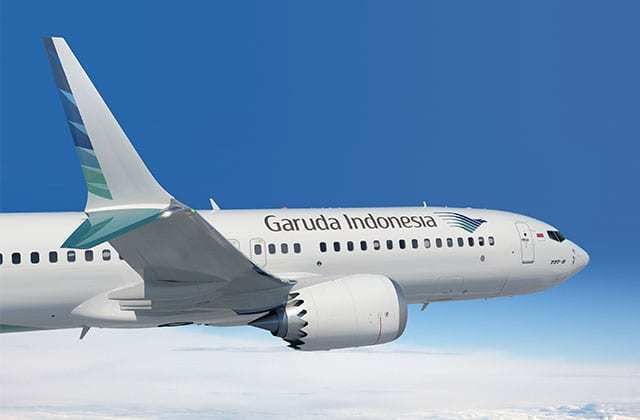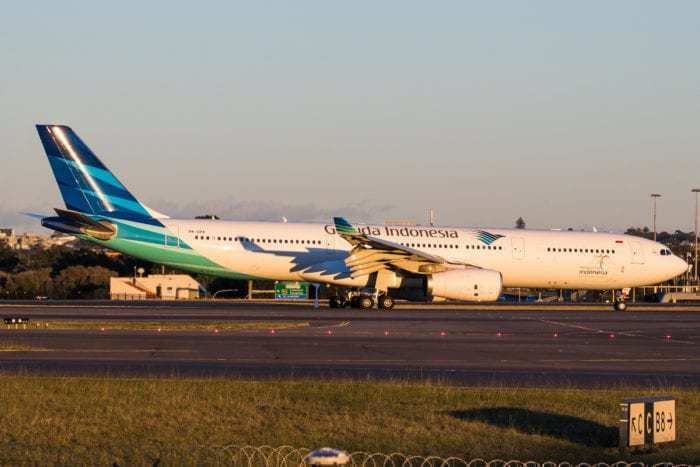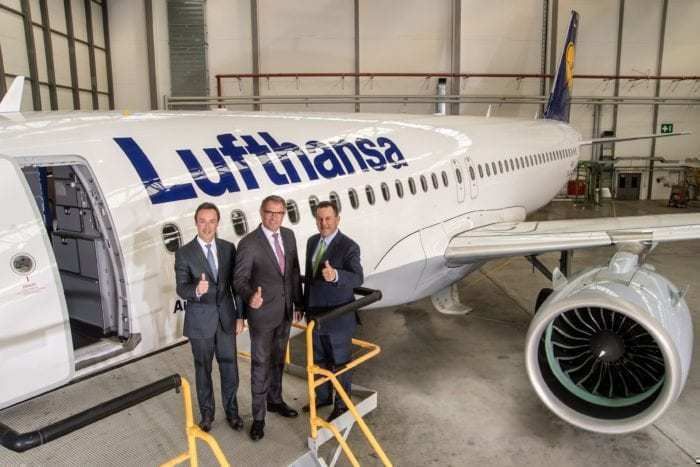Some airlines are expecting Boeing to pay for costs incurred from the grounding of the 737 MAX. However, one airline is going a step further. Garuda Indonesia, the flag carrier of Indonesia, has sent a letter to Boeing requesting the cancellation of their order for 49 Boeing 737 MAX 8 aircraft.
Although the Indonesian carrier acknowledges Boeing is intending to fix the MAX, passenger confidence has been likely lost, making it hard to operate flights with the aircraft.
Will an Airbus A320 order replace Garuda Indonesia's cancelled 737 MAX orders?
As yet, Garuda has no plans to add Airbus narrowbodies to their fleet. Boeing representatives have agreed to meet with the airline in Jakarta next week "for discussion and negotiation" regarding the request to cancel their order. The discussions may involve converting their 737 MAX order to a different Boeing aircraft.
If the cancellation request does move forward, Garuda will need to find a narrowbody replacement for the aircraft they have on order. The focus for the carrier will be to find an aircraft which offers similar functions and seats as the 737 MAX. The most likely option is clearly the Airbus A320neo, which shares similar fuel efficiency, range and passenger capacity.
Comparison of the A320neo vs. 737 MAX 8
The A320neo and 737 MAX each come in three variants. The A320neo features two engine choices: the CFM LEAP-1A and the Pratt & Whitney PW1100G GTF. Geared Turbofan (GTF) engines are highly popular in next-generation aircraft worldwide, powering the Airbus A220, Embraer’s E-Jet E2s, the Russian-built Irkut MC- 21s, and the Mitsubishi Regional Aircraft (MRJ). CFM International is the sole supplier for the Boeing 737 MAX, which will feature the slightly smaller LEAP-1B.
As the 737 MAX was launched with an older, and therefore less optimized, airframe. Boeing invested more in aerodynamic improvements to squeeze in additional fuel efficiency. The improvements that Boeing made delivered an additional 2% fuel economy to the new engines.
The 737 MAX 8 has a range of 3,550nm (6,570km), compared to the Airbus A320neo that clocks in just below the MAX at 3,400nm (6,300 km). In a two-class configuration, the MAX 8 can accommodate 162-178 passengers and the Airbus A320neo holds 165 passengers.
List prices of the aircraft, are as follows:
- Boeing 737 MAX 8 - $121.6 million
- Airbus A320neo - $110.6 million
Overall
It's clear that the 737 MAX 8 is the better option in terms of performance. However, it comes at a higher list price than the Airbus A320neo.
If Garuda Indonesia does make an order for the A320neo of around 50 aircraft, it'll most likely receive some discounts from Airbus. The A320neo would make a delayed entry to their narrowbody fleet, taking approximately five years to begin delivery. It will also mean an increase in the training and maintenance costs for the airline. However, a transition over to the A320neo for their future aircraft would probably be worth it, if it means passengers will fly with Garuda Indonesia.



